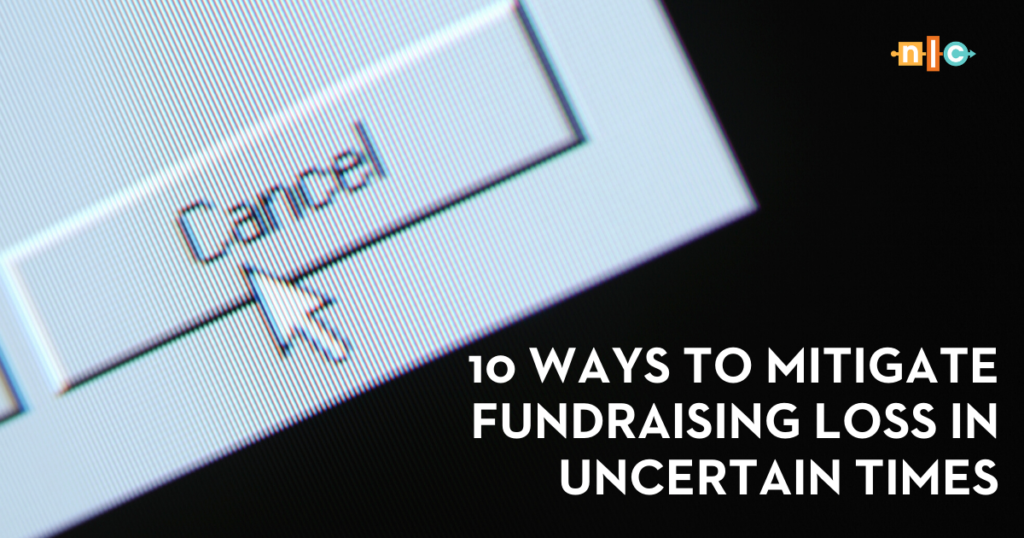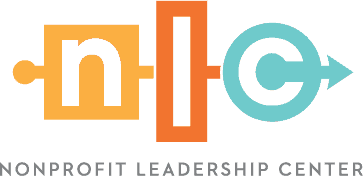Health advisories from federal, state and local officials in response to the Coronavirus outbreak (COVID-19) have resulted in school closures, event cancellations, travel bans and many other containment measures across our nation. [You can read NLC’s response here.] Nonprofit special events and fundraising activities are among the many events that have been canceled or postponed, representing the potential loss of critical dollars to fuel important missions and community work. While we don’t yet know how this will impact nonprofit organizations, there are steps nonprofit leaders can take now to maintain relationships with donors and mitigate the impact of any potential revenue loss.

1. Keep donors informed.
Be proactive in personally communicating with donors, sponsors, vendors and volunteers about your current and upcoming events. Send emails, post on social media and share any changes to your operations or events on your website. Let donors know what your organization is doing to protect the safety of everyone you serve. Thank them for their financial support, which is critical to your ability to respond in a timely manner and continue providing services.
2. Ask permission.
If you postpone an event for which donations have already been received, ask donors and ticket holders for permission to apply these funds to the rescheduled event. If the event is canceled, ask them for permission to apply their gift directly to mission-critical services. If donors request a refund, send it promptly and cheerfully. Let donors know you value them and hope they will support a future event.
3. Host an online auction.
Consider hosting an online auction if you’ve already secured donated items for a canceled event. There are several companies that manage online auctions. Do some research to find one that works best for your organization. Take photos of each item, post them online and invite donors to bid. You can schedule item pick-up in accordance with closures impacting access to your facilities.
4. Engage your top supporters in peer-to peer-fundraising.
Ask board members, volunteers and your most passionate supporters to assist you in continuing your mission during these uncertain times by hosting a Facebook Fundraiser on your behalf. This enables them to support your cause and share their passion with their networks by inviting friends and family to make a gift.
5. Host a “non-event.”
Consider converting an in-person event to a virtual one. Sometimes referred to as a “non-event,” this involves sending an “invitation” to past and prospective event supporters asking for a gift in lieu of attending the event. Be clever in asking for gifts that may replicate what donors might have spent to attend, such as a babysitter, or would have contributed at the event. Keep the focus on your mission and who their generosity will benefit (it’s NOT about your fundraising goals).
6. Ask for one-time gifts.
Reach out individually to long-standing donors to ask for a one-time gift to ensure the continuation of services if revenue is lost or delayed due to canceling or postponing a major fundraising event.
7. Send donor love.
Use this time to engage board and staff members in thanking donors for their loyalty and wishing them well during the crisis. Calls, personalized letters, hand-written notes and customized video messages sent via text or email are great ways to let donors know how important their support is to the people you serve, especially during times of crisis. While acknowledging the seriousness of this outbreak, don’t hesitate to be clever in showering your supporters with some heartfelt donor love.
9. Look to the future.
Now may be a good time to research new grant opportunities or fundraising strategies that you haven’t had time to pursue. Examples include learning more about generational differences and how they impact giving, best practices for direct mail, and updating your case for support. All of these things will help your organization raise more money in the future.
10. Wash more than just your hands.
Take time to clean up donor records, double-check addresses and remove inactive records to maintain an accurate database of past and present donors, volunteers and sponsors. Making these improvements now will save time, reduce costs and improve results when events and communications return to normal again.
A word about capital campaigns: If your organization is involved in or about to launch a capital campaign, consider how the Coronavirus may impact the campaign plan, including donors’ ability to contribute and the best time to ask. Consider utilizing an external campaign consultant to provide advice and guidance regarding these decisions, including the importance of maintaining donor engagement and campaign momentum.

Alyce Lee Stansbury, CFRE, President of Stansbury Consulting, is a nonprofit expert, 25-year fundraising veteran and popular instructor at NLC. Contact her at alycelee@StansburyConsulting.com or 850-668-2569.
Want to be the first to hear about the latest nonprofit tips, resources and training classes at NLC? Sign up to receive our weekly NLC e-newsletter to help you thrive personally and professionally.

